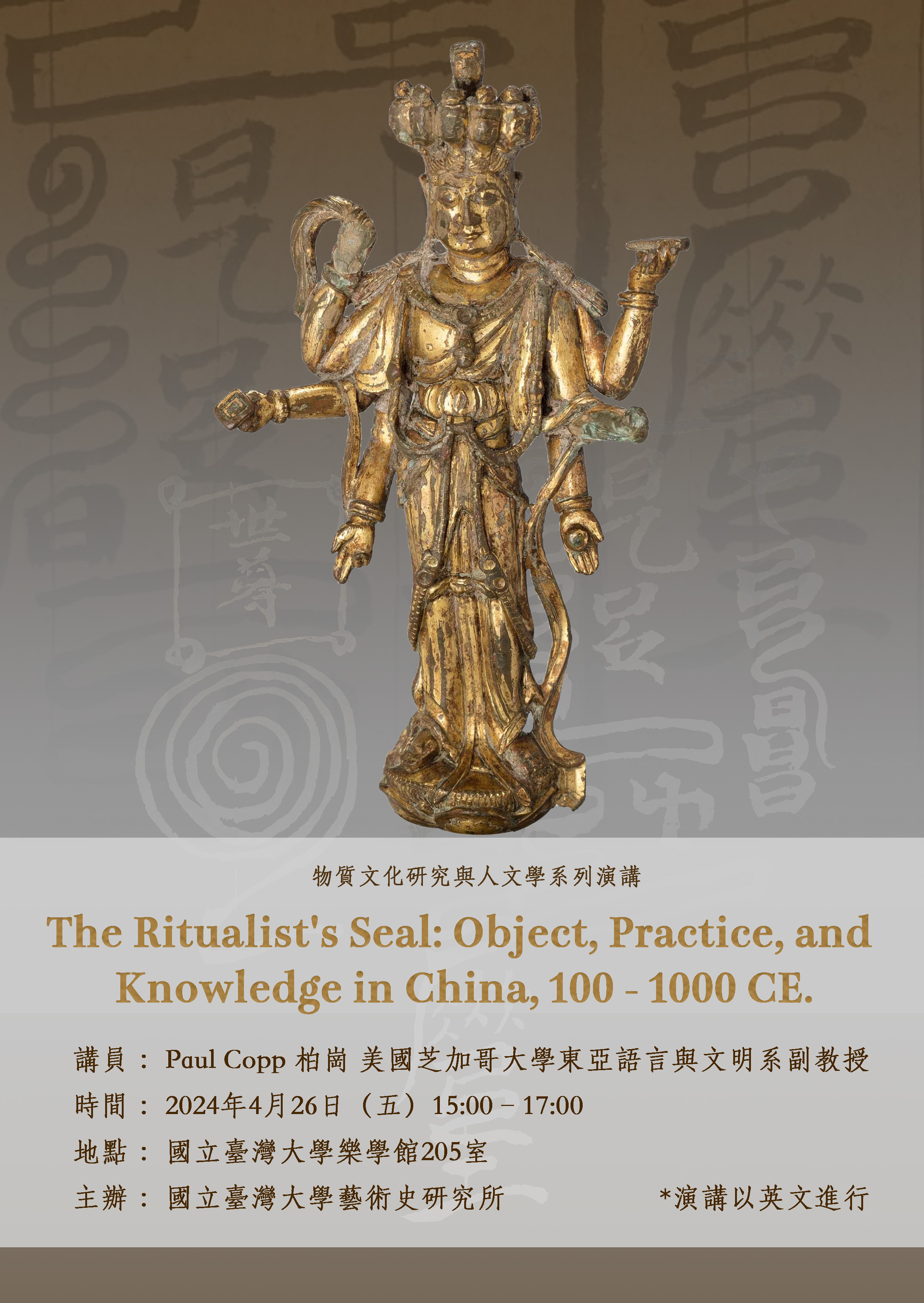


Paul Copp 美國芝加哥大學東亞語言與文明系副教授
2024年04月26日(週五) 15:00-17:00
國立臺灣大學 樂學館205室
國立臺灣大學藝術史研究所
This paper—drawn from an in-process book of the same name—traces the history of seals in Chinese religious practice from their first appearances in Eastern Han tombs through to tenth-century manuscript manuals for their making and use, and paintings depicting them in the hands of bodhisattvas, found within the Dunhuang cache. It argues that seals both fit seamlessly within pre-existing practices, often of exorcism and protection, and changed them in basic ways. It changed them, fundamentally, by introducing a new logic of practice and a new understanding of the nature of ritual agency—one centered in the seal’s ability to both embody identity and extend it to others. More than simply changing ritual practices, in fact, this paper argues that seals transformed the understood nature of humans and their relationship with the cosmos in Buddhism and (to a lesser extent) in Daoism.
The paper will proceed in three parts. First, it offers the definitions of seal and stamp as related but importantly distinct kinds of object that guides the paper and sketching the history of seals in China that informs its picture of religious seals. Second, it outlines the history of religious seals and seal techniques at the heart of the book. And, finally, it describes the ways that these pictures of objects and ritual action transformed the nature of conceptual thought in Chinese Buddhism and Daoism. In this, the paper seeks to offer an example of the ways that material culture and philosophical inquiry were inextricably intertwined.